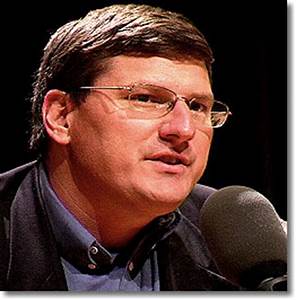How Policy Is Made in Russia
The fact is, any Russian expert worth their salt knows what Russia's goals and objectives vis-Ã -vis Ukraine are because the Russians told us back in 2008. One of the few genuine Russian experts in a position to influence policy, C.I.A. Director William Burns, put it all down in writing in a February 2008 cable entitled, simply enough, "Nyet means Nyet: Russia's NATO Enlargement Redlines." He wrote it while serving as the U.S. ambassador to Russia during the administration of President George W. Bush.
Burns, reporting on the Russian reaction to the 2008 NATO summit where the idea of membership for Ukraine was floated, noted that the Russian Foreign Ministry had declared that "a radical new expansion of NATO may bring about a serious political-military shift that will inevitably affect the security interests of Russia."
The Russians highlighted that when it came to Ukraine, Russia was bound by bilateral obligations set forth in the 1997 Treaty on Friendship, Cooperation and Partnership in which both parties undertook to "refrain from participation in or support of any actions capable of prejudicing the security of the other side." Ukraine's 'likely integration into NATO," the Russian Foreign Ministry declared, "would seriously complicate the many-sided Russian-Ukrainian relations," and that Russia would "have to take appropriate measures."
Burns gave the Bush administration the Russian playbook of consequences should NATO seek to move forward on membership for Ukraine. This information was known to McFaul, Hill, Kendall-Taylor, and all the other so-called "Russian experts," yet they failed to address it (further reinforcing Putin's claims that "fundamental Russian concerns were ignored").
The concept that Putin would act "impulsively" in 2014 to a problem outlined concisely and accurately in 2008 by the Russian Ministry of Foreign Affairs likewise shows an absolute disregard for, or ignorance of, how policy is made in Russia today.
There is no doubt that Putin is a very powerful president wielding strong executive powers. But he is not a dictator, nor is Russia set up to be ruled by a dictator.
Russian policy is made by professional bureaucrat-specialists resident in the extremely dense permanent Russian bureaucracy. These bureaucrats, part of the Russian civil servant class, are responsible for turning policy guidance into detailed implementation plans from which the resources needed for implementation are assigned, along with a timeline for completion of the task.
These implementation plans cut across ministries and are designed to consider all foreseeable variables. In short, Russian policy is the by-product of a process which represents the coordinated effort of a vast bureaucracythe exact opposite of the individual "impulsivity" ascribed by McFaul, Hill, Kendall-Taylor, and others to Putin.
The plan implemented by Russia regarding Crimea in 2014 was born of the Russian concerns expressed in 2008, and were not the knee-jerk reactions of an impulsive, risk-taking Russian President. The same can be said for the situation unfolding in Ukraine today. The fact that Biden and his national security advisors are locked on to Putin as the personification of all things Russia is indicative of a fundamental misunderstanding of how Russia works or worse a deliberate campaign of perception management intended to deceive the American public about the complexities and realities of U.S. policy objectives.
Getting it wrong when it comes to defining policy-making reality in Russia today goes well beyond simply formulating bad policy, which is then incompetently implemented. The United States is ceding the initiative to Russia and its president. At the end of the day, one would be hard pressed to make a case where the executive decision-making powers of Vladimir Putin far exceed those of his American counterpart.
The Russians, however, have a two-fold advantage over the United States in terms of policy implementation. First and foremost, they are dealing with an executive who has been at the helm of the Russian ship for two decades; Putin is unmatched when it comes to knowledge of his system of government, and how to make it work. Even someone like Biden, with his four-plus decades of government experience, operates like a rookie during his first few years in office, if for no other reason than he is, in fact, a rookie.
A U.S. presidential administration in its first term is, literally, starting from scratch. True, there is a standing American civil service (some call it part of the "deep state") which provides a modicum of operational consistency from administration to administration, but the critical leadership for every administration is provided by the political appointees. As opposed to Russia's twin decades of consistent policy formulation and implementation, the United States has witnessed during the same time frame four changes of administrations, each one with a radically different approach toward governance than its predecessor.
A Manufactured Narrative
The only consistency between administrations is the need to manufacture narratives used to placate a domestic constituency about policies linked to national defense and, by extension, the defense industry. Here, the demonization of Russia has played a large role in defining U.S. defense needs and, by extension, the acquisition of weapons.
No administration has trusted the American public to engage in a fact-based national dialogue about the "threat" posed by Russia and, by extension, the continued need for NATO. The main reason for this is, if the facts were presented clearly, no American could possibly support the continuation of NATO and, therefore, would not support the elevation of Russia as a threat worthy of hundreds of billions of our taxpayer dollars.
(Note: You can view every article as one long page if you sign up as an Advocate Member, or higher).





